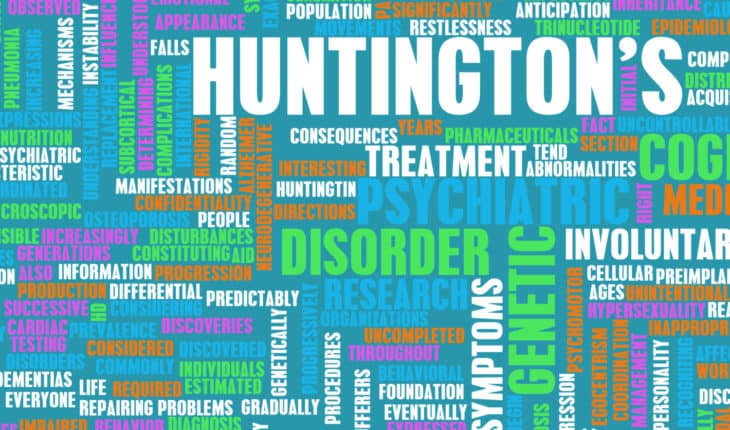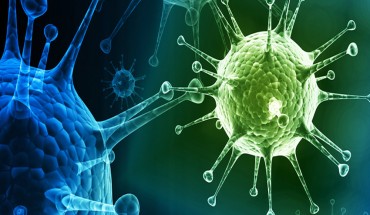Aberdeen has recruited the first UK patient for a new trial investigating pridopidine, an oral drug for the treatment of Huntington’s disease. The PROOF-HD study, sponsored by Prilenia Therapeutics, will enrol up to 480 people with early-stage Huntington’s at approximately 60 sites across the US, Canada, and Europe.
Huntington’s disease – often known as HD – is a fatal inherited condition that causes neurons in the brain to degenerate. This in turn stops parts of the brain working properly over time.
It causes increasing memory difficulties, psychiatric problems and twitchy movements which the person cannot control.
It is usually fatal around 20 years after it becomes obvious. There is currently no effective treatment to halt or slow its progression.
HD is caused by a faulty gene. Each child of a parent with HD has a 50% chance of developing the condition.
Around one in 7,000 people in Scotland have symptoms of Huntington’s and many more live at risk of developing symptoms from the faulty gene.
The PROOF-HD study is a phase 3 clinical trial. It will investigate a drug called pridopidine as a treatment for the disease. In contrast to some other treatments being investigated, the PROOF-HD study only requires participants to take a capsule orally twice a day.
The drug is designed to activate a certain receptor which is highly expressed in the brain called the Sigma-1 receptor (S1R). Activation of the S1R triggers mechanisms that are crucial for maintaining neurons function and survival. This may lead to beneficial effects on functional capacity in HD.
Pridopidine has been tested already in nearly 1000 HD patients and is shown to be safe and well tolerated.
Patients who are eligible for the study will be contacted by their consultant.
Professor Zosia Miedzybrodzka, from the University of Aberdeen, who is leading the study, said: “Huntington’s disease is a serious condition with no known treatments that slow functional decline.
“With no effective treatment currently trials such as PROOF-HD are of huge importance and the promise of effective treatments is really important to families living with the disease.”
Alistair Haw, Chief Executive Officer of Scottish Huntington’s Association, said: “Whilst there are no current treatments that slow the advance of HD, families impacted by this appalling condition can be encouraged by the volume of trials currently underway to find the breakthrough we all long for.
“When this breakthrough comes, as we firmly believe it will, it will be thanks to the courage of family members who selflessly volunteer to take part in such trials combined with the expertise of the world’s top researchers, scientists and clinicians. We are hugely fortunate so have such a dedicated community in Scotland, and we look forward to working with Professor Miedzybrodzka, her team and our HD families as they take this exciting new research project forward.”
About Huntington’s disease (HD)
Huntington’s disease is a complex neurological condition with symptoms that typically begin to develop between the ages of 30 and 50, but can come sooner or later. It impacts upon entire families over generations rather than on individuals alone, with each child of a person who has Huntington’s disease at 50% risk of inheriting the condition.
Symptoms generally progress slowly over a long period time. Those who have the disease may eventually lose the ability to walk, talk, eat, drink, make decisions or care for themselves. It often takes between 10 and 25 years from a person developing HD symptoms until the end of life.
As Huntington’s disease progresses it can impact a person’s:
- Movement (or motor skills): Repetitive involuntary movements, which result in mobility, balance and coordination problems as well as difficulties with speech and swallowing.
- Thinking processes (or cognition): A type of early onset dementia, which affects ability to process information, make decisions, solve problems, plan and organise.
- Mental health: Depression, anxiety, irritability, obsessive pre-occupations and apathy are amongst the most common mental health problems experienced. Psychosis may also occur.
Around 1 in 7000 people in Scotland have HD. 1100 people have been diagnosed with the disease with an estimated 4000 – 6000 at risk of inheriting it from their parents.
Although worldwide research is taking place there is, at present, no cure for Huntington’s disease. However, many of its symptoms can be managed with a combination of medication and input from medical, health, social care providers. In the North of Scotland specialist HD care is offered to families by Prof. Miedzybrodzka’s HD clinic team, which is a close working partnership of NHS clinic and research staff and specialist workers from the Scottish Huntington’s Association (SHA based in Aberdeen and Inverness).
About Scottish Huntington’s Association (SHA)
Scottish Huntington’s Association is the only charity in the country exclusively dedicated to supporting families impacted by HD.
SHA does this through a team of HD Specialists, a world leading team of Specialist Youth Advisors and a Financial Wellbeing Service. The lifeline services SHA provides make the difference between families coping and not coping.
About the National Care Framework for Huntington’s Disease (HD)
The National Care Framework for Huntington’s Disease – the first of its kind in the world – was developed by a multi-disciplinary expert group led by Scottish Huntington’s Association, with funding and support provided by the Scottish Government.
The online resource helps to ensure families impacted by the condition are able to access the best possible care, information and support regardless of where they live in Scotland. The Framework has been endorsed by NHS Boards, health and social care partnerships, family members, academics and national and international third sector partners. Find out more at www.care.hdscotland.org
- Christmas Is for All - 19th December 2025
- Intense influenza season driven by new strain - 19th December 2025
- KFSHRC Develops Novel Technique to Treat Inner Ear Disorders - 19th December 2025







